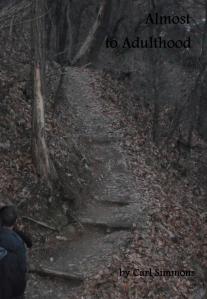Why Potions?
Magic in fantasy stories can be produced/focused/controlled in a variety of ways. Sometimes magicians (mages, wizards, sorcerers, witches, warlocks, what have you) use magic words, other times wands, and other times potions concocted from strange ingredients. Each method conjures particular questions—for example what exactly do words do? Do they focus the mind in a particular way (in which case any word might do) or do they call upon an intelligence to command it (as magicians were thought to do in our own history) or do they tap into an original spoken creative language? Each answer brings with it different consequences for the imaginary world it inhabits.
But today I want to particularly focus on the concept of potions. On first glance, this may seem to be a simple matter: a potion allows its creator to store a magical effect for use at a later time, instead of performing it now. Gamers particularly appreciate this, as this means they can travel around with on-demand magical buffs and heals. But surely there are other options for this storage—orbs, talismans, scrolls, etc.—so why do we tend toward potions specifically (other than out of convention)?
But it gets even trickier; for sometimes potions are used to accomplish immediate effects, such as when the evil queen in Disney’s Snow White transforms herself into an old crone. Additionally, there seems to be a particular potency to some potions that cannot be achieved through a verbal spell: Liquid Luck, for example, may be brewed in the Harry Potter Universe, but there doesn’t seem to be a spell for it. (On a side note, I do wonder why people aren’t brewing Liquid Luck with much greater frequency than they do.) So, why potions? Why are witches often portrayed around some boiling cauldron?
As with many elements of literature, many reasons led to the use and re-use of potions as a fantasy trope. One reason is that potion-brewing is actually a quite familiar and understandable practice, since brewing alcohol and medicines were already parts of everyday life. And if a cup of fermented fruit juice could affect the mind or the heart, it is easy enough to imagine some other brew creating madness or making someone fall in love. People already knew through experience that certain herbs and unguents affected the body, and recognized with wonder that the world was filled with many unknown items (and combinations); what else might such mixtures accomplish?
Such wonder and investigation actually fueled the historical study of alchemy. Alchemy, pursued for centuries before itself being transmuted into the hard science of chemistry, investigated both the physical and the spiritual world. Much of the physical paraphernalia of alchemy and early chemistry continues to show up in illustrations of wizards’ studies today, as an easily identifiable signifier of research and experimentation. But curiously, that same paraphernalia does not commonly feature in witches’ brews, which continue to be made with strange ingredients around that boiling cauldron—an image at least as recognizable and evocative.
I’m sure some feminist scholar might posit some sexist explanation for this, with male wizards getting the benefit of the “scientific” apparatus while female witches must be relegated to the kitchen utensils. But this possibility would not explain potion-brewing before the development of such alchemical tools, and their subsequent inclusion in literature. So what else has contributed to this image?
One thing I note is that witches’ brews often include “creepy” ingredients—eye of newt and all that. And I think, from a storytelling standpoint, that this constitutes a significant part of the magic or potion-making. You see, magic is “other,” strange, esoteric, and frightening; consequently, magical ingredients also should be “other,” strange, esoteric, and/or frightening. (That is, depending upon the type of magic you want in your story. But traditionally, magic has been at least part-way frightening.) A storyteller, by describing such ingredients going into a potion, creates a kind of atmosphere for the story, which cues the readers/listeners to feel and to anticipate certain things. This description, this cueing, is itself a good reason to have potions instead of scrolls for certain kinds of magical—and narrative—effects.
Try it for yourself. Imagine some magical effect, and then write a description of it featuring potion-brewing. Then write the same magical effect using scrolls instead. Then wands or other artifacts. Then words or music. You’ll find the form of magic affects the flavor of the story. Practice enough, and you’ll develop a preference for which methods are best for producing which effects.
Thanks again to Rose Tursi for a little art to grace my blog. Check out more of her stuff on her site. And if you’re an artist yourself, let me know. I’m particularly interested in posting illustrations for The Servant and the Scepter (read an excerpt here) or Almost to Adulthood (sample here).


